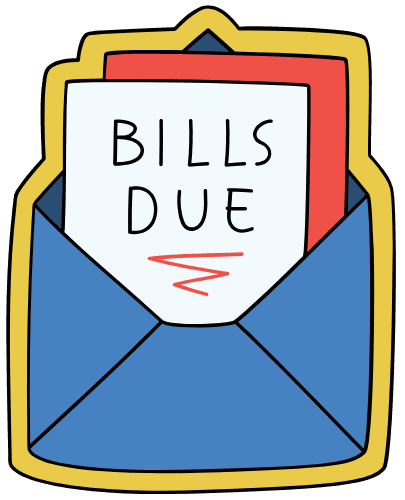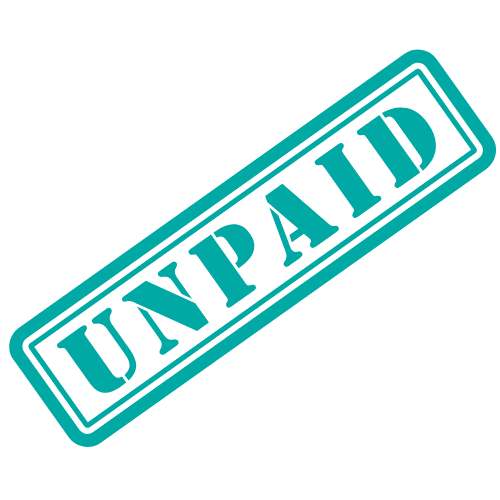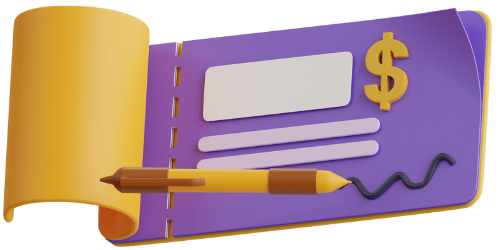💸 Recovery of Dues & Cheque Bounce Matters
In the dynamic world of business and finance, unpaid dues and dishonoured cheques can severely impact cash flow, disrupt operations, and strain relationships. At TAXAJ, we provide swift and legally sound strategies to help individuals and businesses recover outstanding amounts and take firm action in cases of cheque bounce or payment default.
🧾 Recovery of Dues – Legal Support for Unpaid Amounts
When clients or vendors delay or default on payments, it’s not just inconvenient—it can seriously impact your business operations. At TAXAJ, we offer end-to-end legal solutions to help you recover unpaid dues quickly, lawfully, and strategically.
✅ Our Services Include:
1️⃣ Drafting & Sending Legal Demand Notices
We begin by preparing a legally sound demand notice, clearly stating the dues owed, basis of claim, and deadline for payment. This often results in out-of-court settlements and prevents prolonged litigation.
3️⃣ Filing Civil Suits for Recovery
If the other party refuses to comply, we can file a civil suit for recovery under Order XXXVII of the Civil Procedure Code (CPC)—also known as a summary suit. This is a faster process with limited scope for defense, ideal for recovering clear monetary debts.
4️⃣ Arbitration & Alternative Dispute Resolution (ADR)
If your contract includes an arbitration clause, we help initiate and represent you in domestic or international arbitration to secure a binding award against the defaulter.
5️⃣ Execution of Decrees or Awards
Winning a case is one step—enforcing it is crucial. We assist in the execution of recovery decrees or arbitral awards, including attaching bank accounts, property, or salary of the debtor.
6️⃣ Commercial Court Filings
For business-related dues over ₹3 lakhs, we help initiate cases under the Commercial Courts Act, ensuring time-bound adjudication and efficient case management.
7️⃣ Legal Representation in Court
From district courts to high courts, our litigation team represents you at every stage—drafting pleadings, arguing your case, and ensuring timely relief.
2️⃣ Pre-Litigation Advisory & Negotiation
Our legal team advises you on the best course of action before going to court. Where appropriate, we initiate negotiations or structured settlements to recover dues without escalating the matter, preserving commercial relationships where possible.

⚠️ Cheque Bounce – Legal Recourse Under Section 138
A bounced cheque is not merely a financial inconvenience—it's a criminal offence under Section 138 of the Negotiable Instruments Act, 1881. This provision empowers the payee (recipient of the cheque) to initiate criminal proceedings against the drawer (issuer of the cheque) when a cheque is dishonoured due to insufficient funds, stop payment instructions, account closure, or mismatched signature.
📌 Essentials of Section 138 Action:
To attract penal action under Section 138, the following conditions must be fulfilled:
Cheque Presented for a Legally Enforceable Debt or Liability
– The cheque must have been issued in discharge of an existing debt or liability, not as a gift or donation.Cheque Returned by Bank Unpaid
– The bank must return the cheque unpaid with a specific reason (e.g., “insufficient funds,” “account closed”).Issuance of Legal Notice Within 30 Days
– The payee must issue a written legal demand notice to the drawer within 30 days of receiving the dishonour memo from the bank.15-Day Waiting Period After Notice
– The drawer is given 15 days to make payment after receiving the notice. If payment is made within this period, no further action can be taken under this section.Filing of Criminal Complaint Within Prescribed Time
– If no payment is received within 15 days, the payee must file a criminal complaint before the Magistrate within 30 days after the expiry of the 15-day grace period.
⚖️ Penalties for Cheque Bounce under Section 138:
If proven guilty, the drawer may face:
Imprisonment up to 2 years
Fine up to twice the cheque amount, or
Both
The court may also direct the drawer to compensate the payee for litigation expenses and financial loss incurred.
🔄 Additional Legal Options:
Civil suit for recovery of dues
Complaint under Section 420 IPC (in case of fraudulent intention)
Filing under the Commercial Courts Act, if related to a business transaction
📝 Important Note: A cheque issued as a security or advance may not always be actionable under Section 138 unless clear evidence exists of a debt due at the time of presentation.
⚖️ Other Remedies: Beyond Section 138
While Section 138 of the Negotiable Instruments Act is a powerful tool to penalize cheque defaulters through criminal prosecution, it's not the only remedy available to recover your money. Indian law also provides civil and equitable remedies to ensure the defaulter is held accountable and your dues are recovered.
1️⃣ Civil Suit for Recovery of Money
You can file a civil suit for recovery of dues—especially if:
The cheque was issued as a security
There's no legally enforceable debt at the time of cheque presentation
The amount involved is substantial and you're seeking interest or compensation
You can pursue this under:
Order XXXVII of CPC (Summary Suits) – Fast-track remedy for liquidated amounts like unpaid invoices or dishonoured cheques
Regular recovery suits under CPC if Order XXXVII does not apply
3️⃣ Complaint Under BNS – Section 318 (Cheating)
If the cheque was issued with a fraudulent intent—such as knowing there were no funds, or to deceive—you may initiate proceedings under Section 318 IPC (cheating). This is a serious criminal offence and may result in:
Imprisonment up to 7 years
Fine or both
Note: This route requires you to prove intention to cheat at the time the cheque was issued.
4️⃣ Arbitration Proceedings (If Applicable)
If your agreement contains an arbitration clause, you can initiate arbitration proceedings for recovery instead of going to court. Arbitration is a quicker and private method of resolving commercial payment disputes, and the resulting arbitral award is legally enforceable like a court decree.
📌 Legal strategy is not one-size-fits-all. TAXAJ helps you choose the right remedy—or a combination—for the best chances of recovery.
2️⃣ Commercial Disputes Under Commercial Courts Act, 2015
For cheque bounce or payment defaults arising out of a business transaction valued above ₹3 lakhs, you can file under the Commercial Courts Act, which mandates time-bound resolution and strict procedural discipline.
This is especially useful for:
MSMEs
Vendors & suppliers
Franchise, dealership, or distribution businesses

5️⃣ Insolvency Proceedings Under IBC (For Corporate Debtors)
If the defaulter is a company or LLP, and the cheque bounce is part of a larger financial default, you may initiate corporate insolvency resolution proceedings (CIRP) under the Insolvency and Bankruptcy Code, 2016 for amounts above ₹1 crore.
✅ Why Choose Multiple Remedies?
You can often pursue both criminal and civil remedies simultaneously for stronger enforcement. For example:
File a Section 138 complaint to pressurize the drawer
Simultaneously file a civil recovery suit to claim the amount, interest, and costs
📊 Common Scenarios Where Dues Remain Unpaid
In business and individual transactions, unpaid dues can arise from a wide range of circumstances—often putting financial strain on the party owed. At TAXAJ, we frequently assist clients in recovering amounts in the following common scenarios:
1️⃣ Unpaid Invoices for Goods or Services
When a customer or client fails to clear invoices after delivery of goods or completion of services, despite reminders, this becomes a classic dues recovery case—common in B2B and B2C relationships.
3️⃣ Loan or Advance Not Repaid
Individuals or entities may borrow money or take advances with a commitment to repay within a specific time—but later default or delay repayment, resulting in recoverable dues.
4️⃣ Non-Payment in Commercial Transactions
Disputes often arise in business deals involving:
Franchise or dealership fees
Royalty or licensing payments
Vendor or distributor settlements
Where contractual payments are either delayed or denied.
5️⃣ Property-Related Transactions
Unpaid rent, security deposit defaults, or non-payment of consideration in sale agreements can lead to legal claims for dues recovery, especially in landlord-tenant and buyer-seller disputes.
6️⃣ Consultancy or Freelance Work Without Compensation
Freelancers and consultants often complete work without receiving full payment, especially in the absence of strong contractual protection.
7️⃣ Service Termination Without Final Settlement
Companies may terminate services (such as advertising, software development, legal or staffing contracts) without settling dues owed up to that point, especially if contracts lack proper exit clauses.
2️⃣ Cheque Bounce After Payment Commitment
In many cases, the payer issues a post-dated or regular cheque, but it bounces due to insufficient funds or account closure. This leads to both financial loss and legal grounds for action under Section 138 of the NI Act.

8️⃣ Employee Reimbursements & Full and Final Settlements
In employment disputes, delayed or withheld reimbursements, bonuses, or F&F settlements can also become legal dues that require formal recovery.
💡 Pro Tip: Always maintain documentation—emails, agreements, invoices, bank statements—as they are critical in establishing your claim.
🔍 Documents Required for Recovery & Cheque Bounce Cases
To successfully initiate legal action for recovery of dues or a cheque bounce case, having the right documentation is essential. These documents help establish your claim, support your case in court, and ensure compliance with procedural requirements under Indian law.
Primary Documents:
📁 1️⃣ Agreement or Contract
Purchase order, work order, service agreement, or any formal contract that outlines the transaction and payment terms
Helps prove the existence of a legally enforceable obligation
📃 2️⃣ Invoice or Bill Raised
Detailed invoice(s) issued for goods delivered or services rendered
Demonstrates the amount due and date of transaction
💳 3️⃣ Cheque(s) Issued
Photocopy or scanned copy of the cheque(s) issued by the defaulter
Serves as evidence of the payment commitment
🏦 4️⃣ Bank Memo of Cheque Dishonour
Bank return slip/memo clearly stating the reason for cheque dishonour (e.g., "Insufficient Funds", "Account Closed", "Signature Mismatch")
Mandatory for filing a complaint under Section 138 of the NI Act
📩 5️⃣ Legal Demand Notice
Copy of the legal notice sent to the drawer within 30 days of cheque bounce
Proof of dispatch and delivery (postal receipt, courier tracking, or email screenshot)
📬 6️⃣ Proof of Delivery of Goods or Services
Delivery challans, courier slips, service completion emails, or client confirmations
Reinforces that the service/product was indeed provided
💼 7️⃣ Communication Records
Emails, text messages, or WhatsApp conversations where payment was promised or acknowledged
Useful to show intention and admission of liability
🧾 8️⃣ Bank Statements
Your bank statement showing non-receipt of payment
Supports the claim that no funds were credited despite issuance of cheque
📝 9️⃣ Affidavits or Statements (if required)
Sworn statements detailing the transaction timeline, parties involved, and the breach
Can be submitted at various stages of the legal process
Primary Documents:
📋 Compliance Tip:
✔️ Ensure that legal notices are sent within 30 days of
cheque bounce
✔️ Retain acknowledgment of delivery (physical or digital) of notices
✔️ Keep all communications backed up in a single folder or drive

📞 Final CTA Suggestion:
Don’t wait until your case weakens due to incomplete paperwork.
Contact TAXAJ today and let us help you build a bulletproof case with the right documentation from day one.
📅 Time Limits for Taking Legal Action
Timely action is critical in cheque bounce and dues recovery matters. Missing a legal deadline can invalidate your claim and weaken your position in court. Below are the key time limits you must keep in mind:
🧾 Cheque Bounce (Section 138 NI Act):
✅ Legal Timeline:
Cheque Bounce Date
➤ The cheque is returned unpaid by the bank (dishonour memo issued)Within 30 Days
➤ Send a Legal Demand Notice to the drawer (issuer of cheque) from the date of bounce memo
➤ Must clearly mention the cheque amount, reason for dishonour, and a demand for payment within 15 days15 Days Waiting Period
➤ Drawer has 15 days to make the payment from receipt of the noticeWithin 30 Days After 15 Days Lapse
➤ If no payment is received, you must file a criminal complaint under Section 138 within 30 days from the expiry of the 15-day window
⚠️ Total Effective Time Window:
Approximately 75 days from the date of cheque dishonour
⚖️ Arbitration Proceedings:
If there's an arbitration clause in the agreement:
Limitation period is 3 years from the date of dispute
But it's advisable to initiate arbitration early to avoid delay-related objections
🚫 Why Timelines Matter:
Delay = Loss of rights: If you miss the deadline, courts may dismiss your claim as “barred by limitation”
In criminal cases, delay without justification invalidates your complaint
In civil cases, the debtor can take advantage of technical lapse even if the debt is genuine
💼 Civil Suit for Recovery of Dues:
✅ Applicable Law:
Order XXXVII of the Civil Procedure Code (Summary Suits)
Or regular recovery suits under CPC
📆 Limitation Period:
3 years from the date when the payment became due (i.e., date of invoice, breach, or last acknowledgment of debt)
✅ Can be extended or protected by:
Written acknowledgment of liability
Issuance of part payments
Renewal of contracts

⚖️ Summary Suit under Order XXXVII CPC
Order XXXVII of the Code of Civil Procedure, 1908 (CPC) provides a fast-track legal remedy for the recovery of money, especially when the claim is based on a written contract, invoice, or negotiable instrument like a cheque or promissory note.
✅ When Can You File a Summary Suit?
You can file a summary suit under Order 37 when your claim arises from:
A written contract or agreement
Bills of exchange, promissory notes, or cheques
Invoices for goods supplied or services rendered
Acknowledgement of debt in writing
🧱 Procedure at a Glance:
- Filing of Suit by the creditor with documentary proof
- Summons Served on the defendant, giving 10 days to respond
- Leave to Defend – If the defendant wants to contest, they must apply for permission (leave)
- If No Leave Granted – Plaintiff gets an immediate decree
- If Leave Granted – Suit proceeds like a regular civil case, but still faster than normal suits
This type of suit is called a "Summary Suit" because it allows the plaintiff (the person claiming money) to obtain a decree quickly without a lengthy trial, unless the defendant (the person who owes money) gets court permission to defend.
✅ Key Features:
🕒 Fast-Track Procedure
The court assumes your claim is valid unless the defendant proves otherwise
Defendant cannot file a written statement (reply) without court’s permission
📩 Limited Scope of Defence
The defendant must show a strong and valid reason for not paying
Frivolous or vague defences are rejected, speeding up recovery
🧾 No Oral Evidence (Usually)
The case is decided largely based on documents unless the court permits otherwise
🚀 Advantages of Filing a Summary Suit:
🤝 Mediation & Settlement Options
In many commercial disputes, especially those involving dues recovery or cheque bounce, resolving matters outside of court through mediation or negotiated settlement can be faster, less expensive, and more relationship-friendly than traditional litigation.
✅ What is Mediation?
Mediation is a voluntary, confidential process where both parties sit together (often with a neutral third-party mediator) to resolve the dispute without litigation. It focuses on mutual agreement rather than legal judgment, making it a less adversarial and more collaborative route.
💬 Negotiated Settlements:
- If full mediation isn't feasible, a negotiated settlement through legal representatives can still help you:
Secure partial payments or revised payment plans
Formalize the agreement through a settlement deed or MoU
Include clauses for future penalties or post-dated cheques
Avoid unnecessary court proceedings while protecting your rights
At TAXAJ, we understand that preserving your business goodwill is as important as recovering your dues. That’s why we offer structured legal support for amicable dispute resolution through Mediation and Settlement.
🔑 Benefits of Mediation:
📌 Pro Tip:
Courts in India often encourage parties to attempt mediation before proceeding with full trial, especially in civil and commercial matters.
A failed mediation doesn't harm your legal rights—you can still pursue court action.
🧑⚖️ Stages in a Cheque Bounce Case
📍 Stage 1: Cheque Dishonour by the Bank
The payee presents the cheque to the bank.
If the cheque is dishonoured (bounced), the bank issues a Cheque Return Memo stating the reason (e.g., "insufficient funds").
📍 Stage 3: Waiting Period (15 Days)
The drawer has 15 days from the date of receiving the notice to make the payment.
If the payment is made, the matter ends. If not, the next step follows.
📍 Stage 4: Filing the Complaint
If no payment is received, the payee must file a criminal complaint under Section 138 in the Magistrate Court within 30 days from the expiry of the 15-day notice period.
📍 Stage 5: Court Admission & Summons
The Magistrate reviews the complaint and supporting documents.
If satisfied, the court issues summons to the drawer (accused).
📍 Stage 6: Appearance of the Accused
The accused appears before the court (or via legal representative).
The court may allow bail and begin recording the plea.
📍 Stage 7: Evidence & Trial
Complainant presents evidence through affidavit and documents.
The accused may then cross-examine the complainant.
The accused presents his defence, if any.
📍 Stage 8: Final Arguments & Judgment
Both parties present final arguments.
The Magistrate passes a verdict based on evidence and law.
📍 Stage 2: Issuance of Legal Notice
The payee must send a legal demand notice to the drawer within 30 days of receiving the bounce memo.
The notice must demand payment of the cheque amount within 15 days from receipt.

📍 Stage 9: Conviction, Acquittal or Settlement
If found guilty:
The accused may be sentenced to imprisonment (up to 2 years) or
Fine up to twice the cheque amount, or both
If acquitted: the case ends.
If settled: the court may close the case based on compromise or settlement under Section 147 (compoundable offence).
📌 Optional: Appeal & Execution
Either party may appeal the judgment within the prescribed time.
If awarded compensation or fine, the payee may initiate execution proceedings for recovery.
🔐 Tips to Prevent Cheque Bounce & Dues Issues
Avoiding payment defaults and cheque-related disputes starts with proactive planning, good business practices, and proper documentation. Here are some smart tips to help you protect your financial interests:
✅ 1. Always Have a Written Agreement
Enter into a clear contract or service agreement before providing goods or services.
Define payment terms, timelines, penalties for delay, and dispute resolution methods.
✅ 3. Post-Dated Cheques with Security Clauses
If you're accepting post-dated cheques, make sure there's a clause in the agreement mentioning their purpose (advance, security, final payment, etc.).
Avoid ambiguous arrangements.
✅ 4. Issue Tax Invoices Promptly
Always issue GST-compliant invoices with correct amounts and due dates.
Invoices serve as vital evidence in case of a legal dispute.
✅ 5. Use Bank Transfers Where Possible
Digital payments (NEFT, RTGS, UPI) reduce risks associated with cheque dishonour.
They also create a strong audit trail.
✅ 7. Maintain Proper Documentation
Keep copies of:
Agreements
Cheques issued
Delivery receipts
Bank return memos
Communication trails
These are critical if you need to initiate legal proceedings.
💡 Pro Tip: Prevention is cheaper than litigation. A few clauses in your contract today can save you from months of court battles later.
✅ 2. Verify Client Credentials
For new clients or buyers, conduct basic due diligence (GST, PAN, CIN, address verification).
Check for a history of defaults or litigation, especially in large transactions.

✅ 6. Follow-Up & Send Payment Reminders
Use email reminders and maintain written records of follow-ups.
Automate follow-ups using billing software if needed.
✅ 8. Avoid Delays in Legal Action
If a cheque bounces, act promptly:
Send a legal notice within 30 days
File a complaint within the prescribed timeline
✅ 9. Include Interest Clauses
Specify late payment interest in the agreement (e.g., 1.5% per month)
Helps recover not just the principal but also the cost of delay
✅ 10. Seek Legal Advice Early
Don’t wait for the situation to escalate.
Consult professionals (like TAXAJ) to structure your contracts, recover dues, or handle bounced cheques legally and efficiently.
Why Choose Us?
At TAXAJ, we approach Litigative matters with a unique blend of legal expertise, emotional intelligence, and procedural precision. Such matters are highly sensitive and complex, requiring not just legal capability but also deep empathy, discretion, and smart advocacy. Here's why clients trust TAXAJ:
Consult us today to protect your legal rights and move forward with confidence.
✅ Protect Your Rights, Claim What's Rightfully Yours
If your contract has been breached, don’t absorb the loss in silence. Let TAXAJ help you pursue the compensation you deserve, with a legally strategic and commercially sound approach.
💬 Schedule a consultation today to discuss your damages or breach claim.

